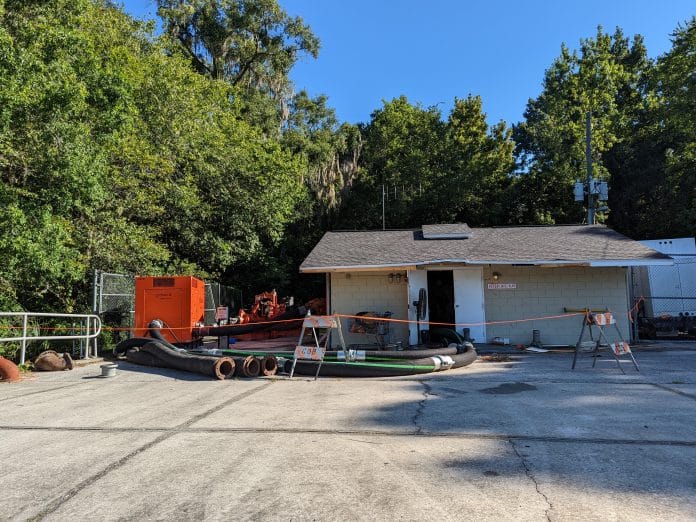The City of Brooksville was praised for the condition of its water and wastewater assets in a report presented by the Florida Rural Water Association (FRWA) on Nov. 7.
Although last month, the Brooksville City Council unanimously approved an emergency declaration Resolution (2022-21) to allow the City Manager and Mayor to authorize and expedite funding repairs to the city’s water and sewer infrastructure. The measure will fast-track repair funding up to $500,000 using the Enterprise Reserve Fund. There is currently $8,000,000 in this fund.
Department of Public Works (DPW) Director Paul Booth asked the council to effectively declare a State of Emergency for the city’s wastewater collection and treatment systems, based on the severity of recent failures, and subsequent findings during the remedies.
On Nov. 7, members of the Brooksville City Council had little comment on a resolution to raise consumer water management costs that were included in the FRWA report.
The FRWA is a non-profit, non-regulatory professional association that helps communities throughout the state manage their small water and wastewater assets. About 15 years ago the Florida Department of Environmental protection (DEP) partnered with the association to develop the access management plans (AMP) required by the state when communities seek water system management grant funds from the State Revolving Fund Program (SRF).
According to the association’s Ron Nalley, the study revealed that while Brooksville water and wastewater assets were aging, none were in need of critical, emergency repair.
“The good news is that asset condition is that 96.83 percent of all assets analyzed in this assessment management plan (AMP) are in average or better condition,” Nally told the panel. “But your system is getting old – there are some things in your system that are starting to need being replaced.”
Among those things are storage tanks, system valves, and manholes.
According to the report, the City would need more than $1.6 million annually to replace, repair or rehabilitate existing infrastructure, prevent infrastructure backlogs, and ensure long-term sustainability.
Based on a historical analysis of sustainable capital and repair funding sources, the City is committing on average approximately $88,750 towards capital and repair projects per year resulting in an annual funding gap of $1,540,899, Nalley said.
“You have enough time to turn that boat and set aside some of this money before you get into some trouble when you get down the road,” he said.
On the wastewater side, the overall annual replacement cost of the 4,418 individual asset categories included in the study totals $74.4 million with an annual replacement cost of $1,755,506.
Completion of the sewer rehabilitation project phase 4, expansion of the wastewater treatment facility, and replacement of the headworks at the wastewater treatment facility are among the high-priority projects contained in the report.
The report also recommended wastewater-related rate increases of 12 percent in 2023, 8 percent in 2024, 7 percent in 2025, and 6 percent in 2026 through 2027 followed by annual rate increases of 3 percent in subsequent years.
Meanwhile, it recommended water rate increases of 10 percent in 2023, 6 percent in 2024, and 3 percent in 2025 through 2030 followed by annual rate increases of 3 percent in subsequent years.
Finally, Nally told the panel that the DEP provided a resolution for approval by the Council that indicates that the Council will approve the projects and rate increases recommended by the report.
The resolution would accompany any request for State Revolving Fund Program funds.
“A lot of boards are saying ‘we don’t want to do this because we don’t want to raise rates’ that kind of thing,” Nalley said.
Brooksville Mayor Pat Brayton declined to comment on the resolution.
“I’ve got a few comments,” Brayton said, “but I’ll save my comments when the resolution comes before the (council) at the next meeting.”
The next regular meeting of the Brooksville City Council is slated to take place on Nov. 21.

